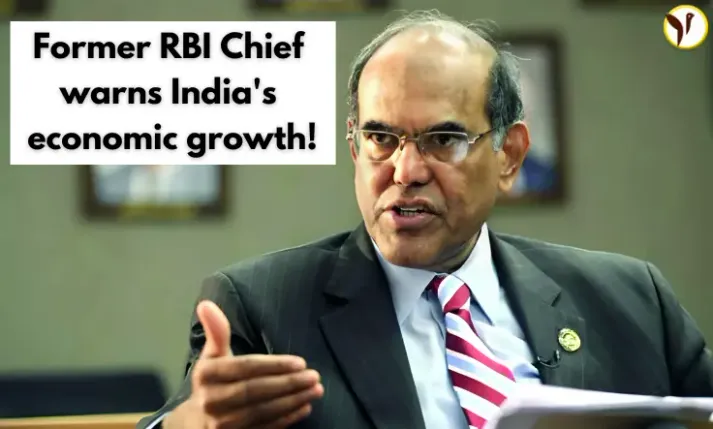Despite India being the third largest economy, it still suffers from increasing poverty. The same has been highlighted by the former Reserve Bank of India (RBI) Chief. He further raised concerns over India's economic growth, stating that despite emerging as the third-largest economy globally, the nation may continue to struggle with poverty. The remarks, made by the former RBI Chief in an interview, shed light on the complex dynamics between economic growth and poverty alleviation.
The former RBI Chief, who served during a crucial period of India's economic development, emphasized that while achieving the status of the third-largest economy is undoubtedly a significant milestone, it does not automatically translate into improved living standards for all segments of society. He underscored the persistent challenges faced by millions of Indians in accessing basic necessities and opportunities for upward mobility.
India's economic trajectory has witnessed remarkable strides in recent years, propelled by factors such as robust industrial growth, technological innovation, and foreign investment inflows. However, the benefits of this growth have not been evenly distributed across the socio-economic spectrum.
Large sections of the population, particularly in rural and marginalized urban areas, continue to experience poverty in various forms, including lack of adequate healthcare, education, and employment opportunities.
D. Subbarao cautioned against satisfaction in assuming that economic growth alone can eradicate poverty. He highlighted the importance of targeted policy interventions aimed at addressing systemic inequalities and ensuring inclusive development. Efforts to strengthen social safety nets, improve infrastructure in underserved regions, and increase access to quality education and healthcare were cited as crucial steps towards achieving sustainable and equitable growth.
Furthermore, the former RBI Chief emphasized the need for policymakers to prioritize poverty alleviation alongside economic expansion. He stressed the significance of implementing measures that empower vulnerable communities, foster entrepreneurship, and promote sustainable livelihoods.
By addressing the root causes of poverty and fostering an enabling environment for socio-economic advancement, India can realize its full potential and create a more equitable society for all citizens.
The remarks by the former RBI Chief come at a critical juncture for India as it navigates the challenges and opportunities of a rapidly evolving global economy. They serve as a timely reminder of the imperative to pursue inclusive and sustainable development strategies that leave no one behind. As the nation strives to consolidate its position as a global economic powerhouse, addressing the needs and wants of the underprivileged remains an essential moral and economic imperative.
The former RBI Chief's observations serve as a clear call to action for coordinated efforts to guarantee that economic progress results in real improvements in the lives of all Indian residents as the country steers towards a brighter future.
India can only genuinely triumph over the plague of poverty and fulfill its dreams of being an affluent and just nation by adopting a complete and holistic approach.







